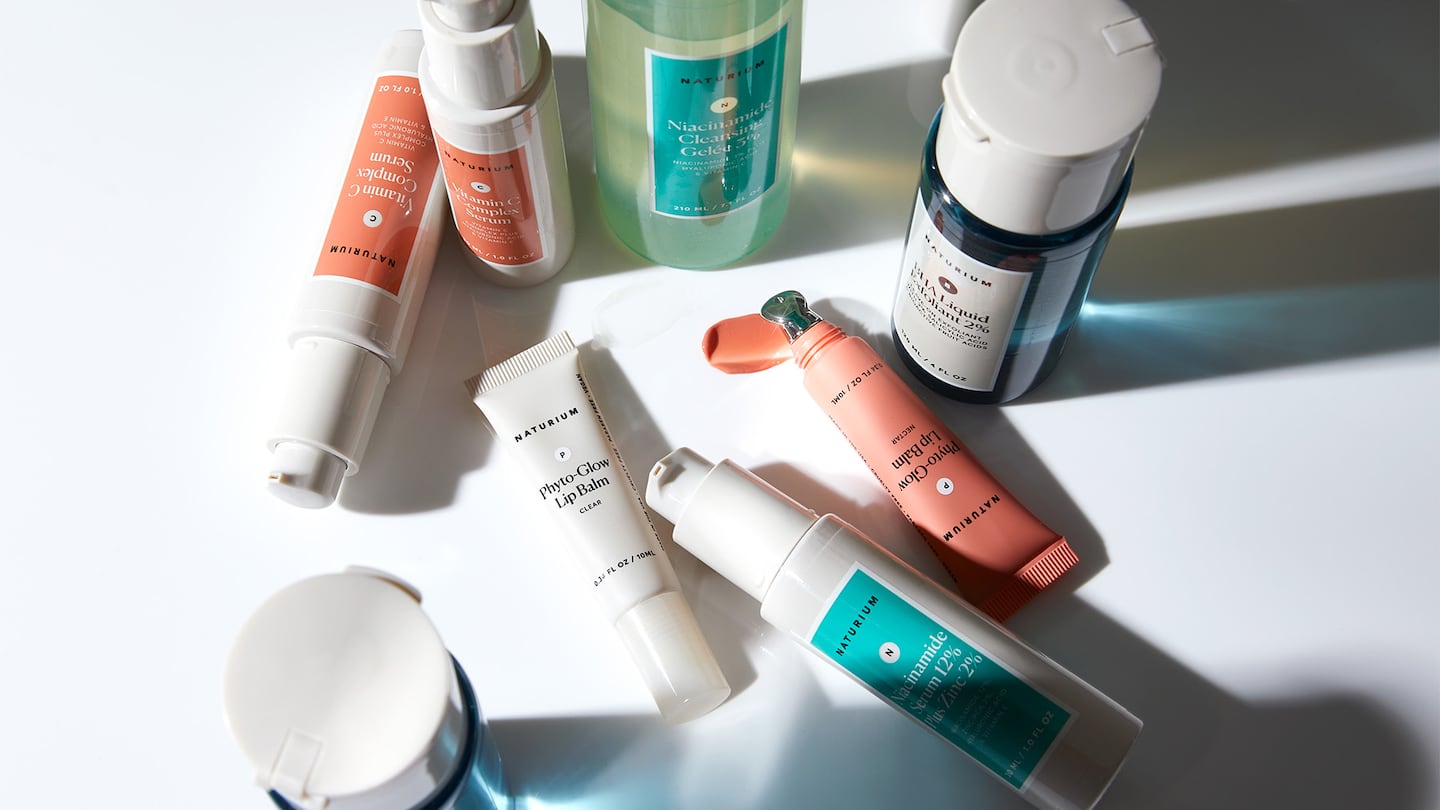
The Business of Fashion
Agenda-setting intelligence, analysis and advice for the global fashion community.

Agenda-setting intelligence, analysis and advice for the global fashion community.

E.l.f. is ramping up its ambitions to become the next big beauty conglomerate.
On Tuesday, the digital disruptor announced a definitive agreement to acquire indie skin care brand Naturium in a $355 million cash and stock deal. Naturium, which was founded in 2019 by beauty brand incubator The Center and influencer Susan Yara, is a self-described “high-performance” skin care brand, focussed on ingredients and product efficacy. Its Vitamin C Complex Serum is a best seller; the product has 7.8 million views on TikTok.
“Naturium is one of the fastest growing brands in skin care; it’s been growing at an 80 percent CAGR (compound annual growth rate) the last two years,” Tarang Amin, E.l.f. Beauty chairman and chief executive told The Business of Beauty. “It’s one of the rare assets that not only is growing extremely fast, but it is, both on the top and bottom line. It reminds me a lot of E.l.f., when I first looked at E.l.f. 10 years ago, it has very limited distribution, its number one [retail] partner is Target and the products are the superstars.”
Earlier this month, E.l.f. reported its 18th consecutive quarter of sales growth and raised its fiscal sales outlook. Naturium is expected to hit $90 million in net sales and $17 million in adjusted earnings before interest, taxes, depreciation and amortisation in 2023. Yara and the rest of the brand’s 25-person, Los Angeles-based team will stay on post-acquisition; Amin added that he plans on growing the Naturium staff in the coming months.
ADVERTISEMENT
With the acquisition, E.l.f. pushes further into skin care, doubling its presence in the category to 18 percent of sales. E.l.f. began selling skin care products in 2015, and last year, the company carved out E.l.f. Skin as its fourth portfolio brand, hoping to convert its makeup lovers into skin care enthusiasts. Much like E.l.f. leaned on its last acquisition, W3ll People, as it reformulated its core makeup portfolio to be clean, learnings from Naturium’s skin care offer will be integrated across its business.
E.l.f.’s last (and first) acquisition was pre-pandemic in 2020; it purchased clean beauty brand W3ll People in a $27 million cash deal. That same year, E.l.f. went on to incubate its first in-house brand, Keys Soulcare, with musician Alicia Keys, solidifying the company’s transition from mono-brand to multi-brand enterprise.
Both W3ll People and Keys Soulcare follow a model of leaning on top retail partnerships at Target and Ulta Beauty, and their own e-commerce sites to connect with shoppers. While very much masstige — it’s also sold at Target and Amazon — Naturium ventures into premium beauty territory; in the UK, the brand is sold at Space NK. The acquisition moves E.l.f.’s overall portfolio positioning up: Naturium’s average price point is $18, whereas E.l.f.’s is around $9.
“E.l.f. is more Gen-Z and value-focused, but Naturium’s driven authority is in skin care and with millennials,” Amin said, noting that 40 percent of Naturium’s customers are men.
He noted that Naturium has aided awareness of about five percent, something that E.l.f.’s marketing know-how can increase significantly. He also plans to integrate some of E.l.f. ‘s technology capabilities into Naturium.com. Amin added that while the company took its time to find a worthy acquisition target, it remains “open” to other deals.
Despite the numerous influencer (and celebrity) brands in beauty and the equally plentiful amount of incubators that have popped up to satisfy budding founders, few have broken out. The last incubator to make any sizable sale was Luxury Brand Partners, which sold Becca Cosmetics to Estée Lauder and hair care label Oribe to Kao Corporation back in 2016 and 2017, respectively. (ELC closed Becca just five years later.)
With the E.l.f. deal, Yara becomes one of few influencers or celebrities to successfully sell a beauty line to a strategic acquirer; though many are for sale. The line was developed four years ago by beauty brand incubator The Center, founded by Ben Bennett; Yara joined the line the following year.
“We’ve built an incredible brand, with numerous superstar formulas, a dedicated community and a world-class team in less than four years,” said Yara in a statement.
ADVERTISEMENT
Amin called out Yara’s skin care expertise and the brand’s relevance with dermatologists, skin influencers and cosmetic chemists as wins, but ultimately, the deal came down to smart economics.
“This [brand] was the first one that hit on our alignment of values and mission all the way down to the strength of the products and the strength of the team,” said Amin. “We’ve seen a lot of fast-growing brands without profit, or we haven’t had the confidence that they have that much whitespace left … I’m excited about this one.”
The Gen-Z favourite brand debuted its first-ever TV commercial featuring Jennifer Coolidge hot off While Lotus buzz, in a prime-time Super Bowl spot — signalling the size of its ambitions.
The two companies, which occupy different ends of the market, report results this week. Plus, what else to watch for in the coming days.
E.l.f. used Tiktok to become a Gen Z favourite. Now the brand wants to turn its new fans into lifelong customers, with a little help from Alicia Keys.

Priya Rao is Executive Editor at The Business of Beauty at BoF. She is based in New York and oversees BoF’s beauty and wellness coverage.
The company reported a long-awaited lift in net sales in its third quarter results, with increases from skincare leading the way, but clouds persist over its China recovery.
As awareness grows about the perils of sleep deprivation, beauty and wellness brands are flooding the market with an array of products to cash in on the booming opportunity.
Going public is usually a pivotal moment in a company’s history, cementing its heavyweight status and setting it up for expansion. In L’Occitane’s case, delisting might be a bigger conduit for growth.
Brands say they’re barreling ahead with marketing and commerce on the app, even as the clock starts ticking for owner ByteDance to sell it or shut it down.